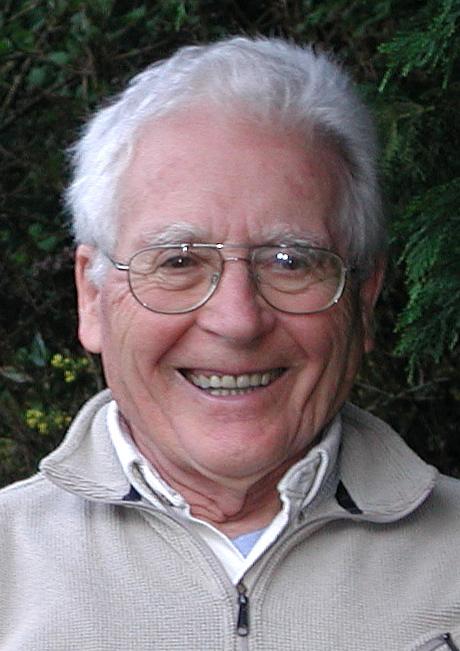Renowned for his groundbreaking work in environmental science, James Lovelock stands as a visionary figure in our quest to understand the intricacies of our planet. With a career spanning decades, Lovelock’s contributions have not only reshaped our understanding of Earth’s ecosystems but have also sparked crucial debates on the delicate balance between humanity and nature. Let’s delve into the fascinating world of James Lovelock and unravel the legacy of this pioneering figure in the realm of environmental studies.
Table of Contents
- – The Remarkable Contributions of James Lovelock to Environmental Science
- – Exploring James Lovelock’s Gaia Hypothesis: A Paradigm Shift in Understanding Earth’s Systems
- – James Lovelock’s Influence on Climate Change Research and Sustainable Practices
- – Embracing James Lovelock’s Legacy: Applying Gaia Theory in Modern Environmental Conservation
- Q&A
- Insights and Conclusions

– The Remarkable Contributions of James Lovelock to Environmental Science
James Lovelock, a pioneering figure in environmental science, has left an indelible mark on the field with his groundbreaking contributions. His revolutionary concept, the Gaia hypothesis, reshaped our understanding of the Earth as a self-regulating system. Lovelock’s idea that the Earth functions as a single, complex organism that maintains optimal conditions for life sparked widespread debate and inspired further research in ecology and climate science.
Moreover, Lovelock’s invention of the Electron Capture Detector (ECD) in the 1950s revolutionized environmental monitoring by enabling the detection of trace amounts of pollutants in the atmosphere. This device played a crucial role in detecting harmful chemicals, such as CFCs, that were depleting the ozone layer. His innovative technology not only raised awareness about environmental threats but also paved the way for advancements in air quality monitoring worldwide. James Lovelock’s multidisciplinary approach and visionary thinking continue to influence and inspire scientists and environmentalists globally.
– Exploring James Lovelock’s Gaia Hypothesis: A Paradigm Shift in Understanding Earth’s Systems
James Lovelock, a pioneer in environmental science, is renowned for his groundbreaking Gaia hypothesis, which proposes that Earth functions as a self-regulating system. His work revolutionized the way we perceive our planet, suggesting that life and the environment are intricately interconnected in a complex system that maintains conditions suitable for life. Lovelock’s concept challenges traditional views of Earth as a passive entity, highlighting the dynamic interactions between living organisms and their surroundings.
Through the Gaia hypothesis, Lovelock prompts us to reconsider our relationship with the Earth, emphasizing the importance of environmental stewardship and sustainable practices. His ideas provoke thought on how human activities impact the planet’s delicate balance and urge us to take responsibility for preserving the intricate web of life on Earth. By delving into Lovelock’s work, we gain a deeper appreciation for the interconnectedness of all living beings and the profound influence humanity has on shaping the environment.
– James Lovelock’s Influence on Climate Change Research and Sustainable Practices
James Lovelock has left an indelible mark on climate change research and sustainable practices through his groundbreaking theories and innovative thinking. His influential work on the Gaia hypothesis, which proposes that the Earth functions as a self-regulating system, has reshaped the way we view the interconnectedness of all living organisms with their environment. Lovelock’s provocative ideas have sparked a renewed interest in understanding the intricate balance between human activities and the planet’s ecosystems.
Moreover, Lovelock’s advocacy for renewable energy sources and his push for global collaboration on climate change mitigation have inspired a new generation of environmentalists and policymakers to take action. His unwavering commitment to raising awareness about the urgent need for sustainable practices has paved the way for meaningful discussions on how we can protect our planet for future generations. By challenging conventional wisdom and offering fresh perspectives, James Lovelock continues to influence the discourse on climate change and sustainability in profound ways.
– Embracing James Lovelock’s Legacy: Applying Gaia Theory in Modern Environmental Conservation
James Lovelock, a renowned scientist and environmentalist, is best known for his groundbreaking Gaia Theory, which proposes that the Earth functions as a self-regulating system. This theory challenges conventional beliefs about the relationship between living organisms and their environment, highlighting the interconnectedness and interdependence of all life forms on our planet.
<p>Through his work, Lovelock has inspired a new perspective on environmental conservation, emphasizing the importance of viewing the Earth as a holistic entity. By applying Gaia Theory principles, modern conservation efforts can focus on achieving a balance that supports the health and sustainability of ecosystems, promoting harmony between human activities and the natural world.</p>Q&A
Q: Who is James Lovelock known for?
A: James Lovelock, a renowned scientist, is best known for proposing the Gaia hypothesis, which suggests that the Earth functions as a self-regulating system. This theory revolutionized the way we perceive our planet and its interconnected ecosystems.
Q: What are James Lovelock’s contributions to environmental science?
A: James Lovelock’s work has had a profound impact on environmental science. His Gaia hypothesis challenged traditional scientific thinking by portraying the Earth as a living, self-regulating organism. This perspective has influenced research on climate change, biodiversity, and sustainability.
Q: How has James Lovelock’s ideas shaped the field of ecology?
A: James Lovelock’s ideas have had a significant influence on the field of ecology. By highlighting the Earth’s complex interactions and feedback mechanisms, he has inspired new approaches to studying ecosystems and understanding the delicate balance between living organisms and their environment.
Q: What is James Lovelock’s legacy in the scientific community?
A: James Lovelock’s legacy in the scientific community is one of innovation and visionary thinking. His Gaia hypothesis continues to spark debate and drive research in diverse fields such as biology, climatology, and geology. Lovelock’s work serves as a reminder of the interconnectedness of all life on Earth.
Insights and Conclusions
As we unravel the enigmatic persona of James Lovelock, his pioneering spirit in the realm of environmental science continues to captivate and inspire. His groundbreaking contributions have left an indelible mark on our understanding of the intricate web of life on our planet. Whether through his Gaia theory or his innovative inventions, Lovelock’s legacy serves as a beacon of hope and a call to action for a sustainable future. Let us remain curious, embrace his vision, and embark on our own journey of discovery, guided by the profound wisdom of a true visionary.



0 Comments